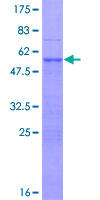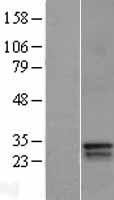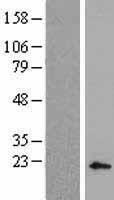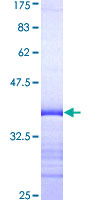order histories, retained contact details for faster checkout, review submissions, and special promotions.
Forgot password?
order histories, retained contact details for faster checkout, review submissions, and special promotions.
Locations
Orders Processing,
Shipping & Receiving,
Warehouse
2 Shaker Rd Suites
B001/B101
Shirley, MA 01464
Production Lab
Floor 6, Suite 620
20700 44th Avenue W
Lynnwood, WA 98036
Telephone Numbers
Tel: +1 (206) 374-1102
Fax: +1 (206) 577-4565
Contact Us
Additional Contact Details
order histories, retained contact details for faster checkout, review submissions, and special promotions.
Forgot password?
order histories, retained contact details for faster checkout, review submissions, and special promotions.
BP1 / DLX4
distal-less homeobox 4
Many vertebrate homeo box-containing genes have been identified on the basis of their sequence similarity with Drosophila developmental genes. Members of the Dlx gene family contain a homeobox that is related to that of Distal-less (Dll), a gene expressed in the head and limbs of the developing fruit fly. The Distal-less (Dlx) family of genes comprises at least 6 different members, DLX1-DLX6. The DLX proteins are postulated to play a role in forebrain and craniofacial development. Three transcript variants have been described for this gene, however, the full length nature of one variant has not been described. Studies of the two splice variants revealed that one encoded isoform functions as a repressor of the beta-globin gene while the other isoform lacks that function.
| Gene Name: | distal-less homeobox 4 |
| Synonyms: | DLX4, Beta protein 1, BP1, DLX7, DLX8, DLX9, Distal-less homeo box 7, Distal-less homeo box 9, Distal-less homeobox 4, Homeobox protein DLX-7, Homeobox protein DLX-8, Homeobox protein DLX-4 |
| Target Sequences: | NM_001934 NP_001925.2 Q92988 |
Publications (2)







If you do not find the reagent or information you require, please contact Customer.Support@LSBio.com to inquire about additional products in development.









